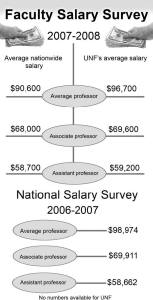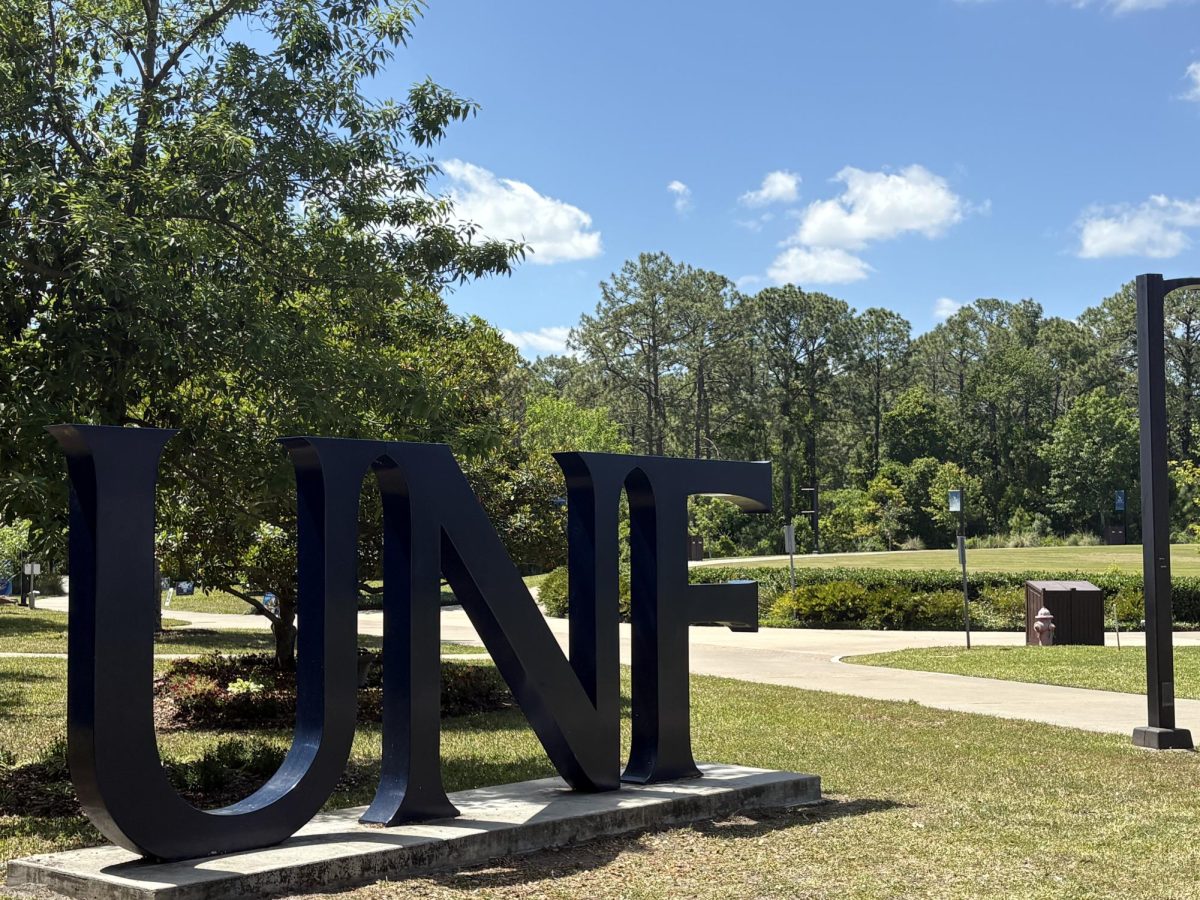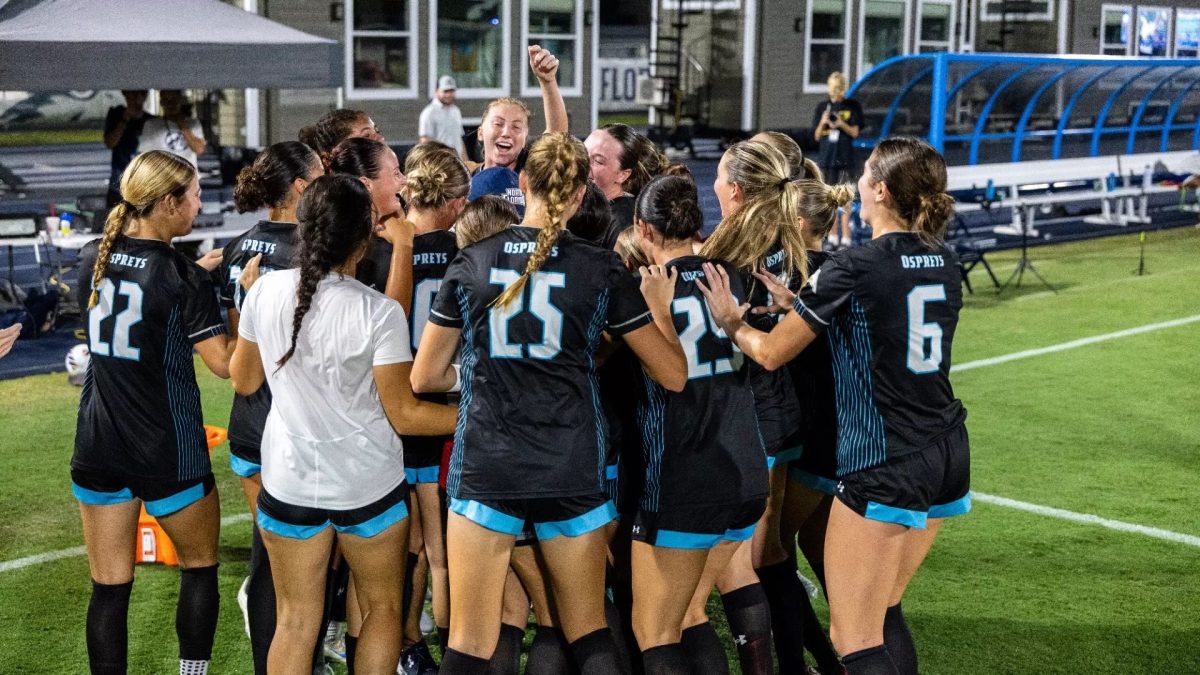 In the wake of budget cuts and the faltering economy, many students feel their wallets are being targeted, but there are also others struggling financially at UNF, even in the same classroom – professors.
In the wake of budget cuts and the faltering economy, many students feel their wallets are being targeted, but there are also others struggling financially at UNF, even in the same classroom – professors.
“We’re at the low end in a state that pays low salaries,” said Henry Thomas, United Faculty of Florida’s UNF Chapter president.
UNF professors earn just above the state average at $96,700 compared to $90,600, according to the Association of American University Professors’ 2007-2008 Faculty Salary Survey. In 2006-2007, the average salary was $98,974.
While a lot of the market problems occur at all universities, UNF has its own paradoxical salary issues.
The frugality of UNF becomes a curse and a blessing during budget-crunch times, said Joann Campbell, associate vice president of academic affairs.
Because of UNF’s savings, the Board of Trustees managed to avoid firing anyone, but since the state income is based on expenditures, UNF gets a lower amount per full-time student, she said.
In the 2006-2007 school year, UNF officials did a study based off professor salaries in the state university system, College and University Professional Association and Oklahoma State University.
According to the study, UNF had the lowest average faculty salaries, and the final report concluded UNF’s salaries must be corrected.
UNF began making changes to raise its salary averages. The promotion rate was increased to 12.5 percent, rather than the nine percent most other state universities have, and new hires got larger salaries, which raised salary averages and compression issues, Campbell said.
But the increases were short-lived as the 2006-2007 year was the last year any raises were given.
Robinson said raising salaries is the only way to hire the most qualified professors, which raises the quality of education given, and therefore creates students who graduate to make better contributions in their prospective job fields.
The importance of faculty salaries to the university is attested by the fact that five out of five UNF college deans surveyed report that low salaries have been an impediment to recruitment and retention of quality faculty, according to UNF’s report.
But in the current economic downturn, the aims of the 2007 report, though still targeted at real issues, are far-fetched and even laughable, Thomas said.
“[We] are realistic,” Thomas said. “This is probably not a time for unions to get on a soapbox and begin to yell about increasing wages.”
In December 2008, the faculty union officials signed a memorandum of agreement between the union and the university that “settled outstanding issues but held the salary issue open,” Thomas said.
The memorandum laid down a three-year agreement, in which only in the second and third year will faculty salaries be addressed.
It was stated in the document that, “Despite our mutual efforts, and the expressed intention and determination of President Delaney to address these issues, the current economic climate has severely limited our ability to effectively address the issue of faculty salaries in our negotiations.”
Thomas said all they can do is wait.
“I think economically we’re in a period of everyone giving up a bit now,” Thomas said. “I think that’s the national mood, I think that’s the state mood and I think that’s the mood on campus.”
Most professors and students have accepted, rather than fought, these troubles, and the ones that have not probably already left for better pay or service elsewhere, Robinson said.
“I think given the [economic] climate – what’s happening in the state and on the national level – we’re being treated as fairly as we can.”
E-mail Rebecca McKinnon at staff3@unfspinnaker.com.















